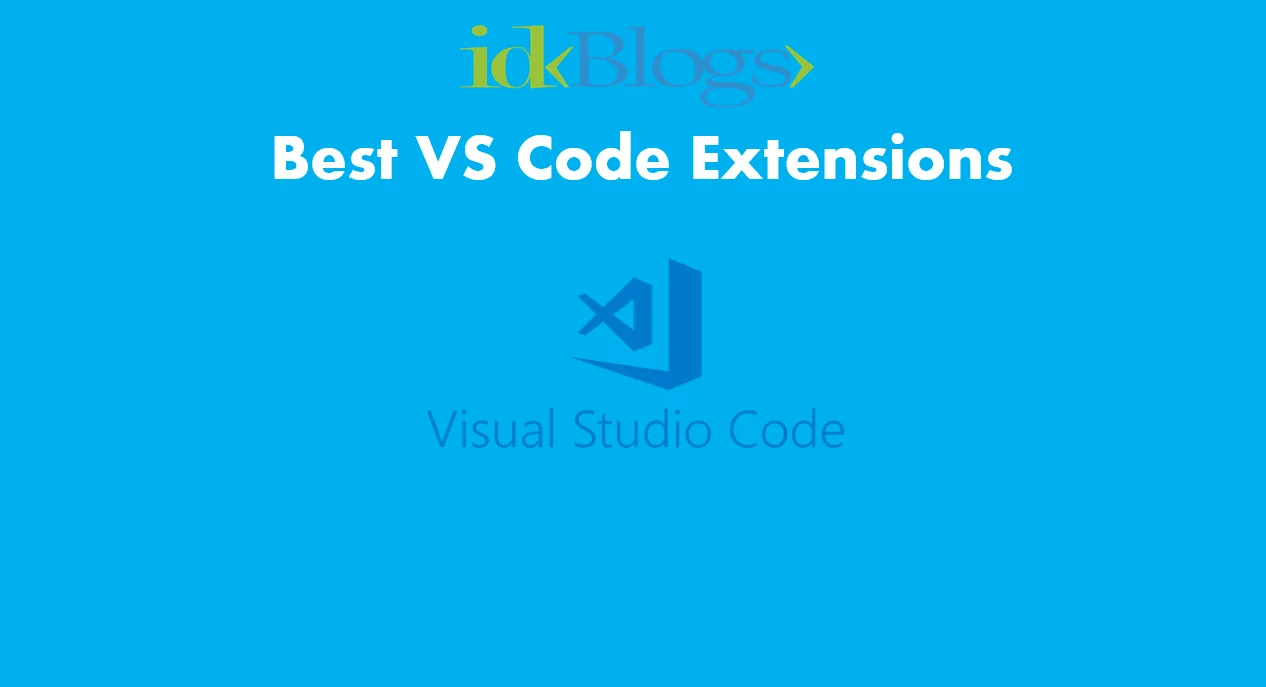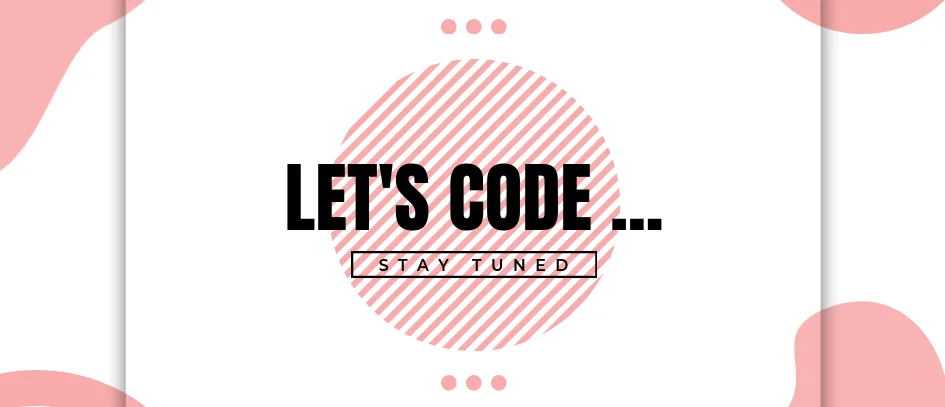
What is Managerial Round Interview?
A managerial round interview is a type of job interview where a candidate meets with a manager or a group of managers to discuss their qualifications, experience, and fit for a specific role within a company. This type of interview is usually conducted after the initial screening rounds and technical interviews.
The purpose of a managerial round interview is to evaluate the candidate's ability to handle the responsibilities of the role, work with a team, and align with the company's goals and culture. During the interview, the managers may ask behavioral and situational questions to assess the candidate's problem-solving skills, decision-making abilities, leadership potential, and communication skills.
Overall, the goal of the managerial round interview is to help the hiring manager(s) make an informed decision about whether the candidate is the right fit for the role and the company.
Now let's discuss the questions and answers which is asked by interviewer in Managerial Interview
This is the part-1 for article Managerial Round Interview Questions
We have Part-2 for this article.
Overall, you will get understanding of following questions:
-
Tell me about yourself
-
What are your day to day activities?
-
What do you know about the company?
-
What are your achievements?
-
What was your challenging work?
-
Why do you want to change the current company?
-
Why do you want to join this company?
-
What do you do when you have conflicts with your co-workers?
-
What if you criticism from your seniors?
-
What if someone/team is disagrees with your ideas?
-
What is your ideal work environment?
-
What are your failures till now?
-
What are your long term goals?
-
What are your hobbies?
-
How do you set priorities for your team and yourself at work?
-
What leadership skills do you have in yourself?
-
What do you do for your Learning and skill Development?
-
What keeps you motivated in high pressure?
-
Why should we hire you?
-
What is your Salary Expectations?
-
How you manage your stress during work?
-
What is the definition of success in your terms?
-
What are your good works that you did till now?
-
What Out of the box you did?
-
What are your weakness?
-
Do you have any questions?
-
How to end the Managerial Discussion?
Tell me about yourself
The best way to answer the interview question "Tell me about yourself" is to provide a concise and compelling summary of your professional background and experiences that are relevant to the position you are applying for. You can structure your answer by following these guidelines:
- Start with a brief introduction about yourself, including your name and current occupation or status.
- Mention your most recent or relevant work experience, highlighting your accomplishments, skills, and responsibilities that align with the job requirements.
- Share your educational background, especially if it's relevant to the position or industry you're applying for.
- Discuss any relevant certifications or training you've received that will make you a stronger candidate for the position.
- Highlight any personal qualities or characteristics that make you a good fit for the job, such as your work ethic, problem-solving skills, or ability to work well in a team.
- Conclude by expressing your enthusiasm for the opportunity and how your skills and experience make you a strong candidate for the position.
Remember to keep your response brief, focused, and tailored to the position you're applying for.
Avoid discussing personal details that are not relevant to the job, and stay away from topics that could
be controversial or sensitive. The goal is to make a positive impression on the interviewer and
demonstrate why you are the best candidate for the job.
Example:
- 7+ years of experience in software development and implementation using Data Structure and Algorithms, NodeJS, Databases, Front end technologies, Elasticsearch, System Design, etc.
- I am a team player and lead the development team. I help the team solve problems and prepare a blueprint for development and building the module or project.
- Hands-on experience in Microservices and Monolithic Architecture.
- I Develop projects and applications using various design patterns. Used monolithic and microservice-based architecture.
- AWS Certified Cloud Practitioner and Certified Aspiring Architect.
- Have good knowledge of cloud computing and technologies like AWS, GCP
- I have client-side experience in Indonesia and also worked for the world's top companies like McKinsey & Company.
- My highest qualification is MCA from HBTU Kanpur.
- My hobbies are reading and writing blogs, watching movies, etc.
What are your day to day activities?
The best way to answer the interview question "What are your day-to-day activities?" is to provide a brief overview of your typical tasks and responsibilities in your current or previous position, while highlighting how they relate to the job you are applying for. You can structure your answer by following these guidelines:
- Start by providing an overview of your job role and your main responsibilities.
- Give examples of your typical day-to-day activities and the tasks you undertake regularly. Try to be specific and mention the most important tasks that relate to the position you are applying for.
- Highlight any unique or challenging projects or tasks that you have been responsible for in the past, and explain how you approached them and what you learned from the experience.
- If relevant, discuss any team or client interactions that you have on a regular basis, and explain how you collaborate with others to achieve your goals.
- Conclude by emphasizing your ability to manage your time effectively, prioritize tasks, and meet deadlines while ensuring quality and accuracy.
Example:
- I direct the team, this is how we build the module or application.
- This is what our architecture will look like. Build the architecture, HLD, LLD, System design, sequence diagram, database design, and How the structural setup will be implemented.
- What technology we are going to use for this module?
- What version is suitable for these requirements?
- Setting up some boundaries and guidelines to work the whole team together in a better way.
- What is the best practice to do this task, This is how we will use the naming convention, This is how we are going to use comments. How we will PR strategy -> Branching strategy or forking strategy
- This dependency injection is good for our requirements. We are creating proper documentation.
- Do we need monolithic or microservice-based architecture
- How many microservices do we need?
- Which database we are going to use for this project and module?
- How we will optimize the code or our component [Example: API and 3rd party API call, FE - Reduce the re-rendering. - useMemo, useCallback, PureComponent, Class component or function Component]
- How we will optimize the query and execution time (Example - Migration Work)
- How we reduce the API latency (Example - Migration Work)
What do you know about the company?
"I have done extensive research on your company and I know that it is a leading organization in your industry. Your company is known for its innovative products/services, exceptional customer service, and commitment to quality. I also read about your recent achievements, such as the launch of new products and your expansion into new markets. I am impressed by your company's mission, vision, and values, and I believe that I share those same principles. Overall, I am excited about the prospect of joining a company with such a strong reputation and positive impact on its industry and customers."Make sure you prepare for the interview by researching the company's website, social media profiles, news articles, and any other relevant sources.
Show your interest and enthusiasm for the company by highlighting your knowledge of their products, services, values, and achievements.
What are your achievements?
When answering this question, focus on specific achievements that showcase your skills and accomplishments related to the job you're applying for. Provide concrete examples of your contributions, the challenges you faced, and the outcomes of your efforts. Remember to be humble and give credit to others who helped you along the way.Example:
- Completing all the projects successfully is my achievement and got appreciated by almost all the clients.
- Got the chance to go onsite, work with clients in Indonesia, and I met people from different geolocations like Singapore, Vietnam, Indonesia, Pakistan, US, etc.
- Getting a certified Aspiring Architect is my achievement.
- Completing the YEP program and AWS CCP.
- I proved myself and now I am a lead software engineer.
- Also, got selected to work with McKinsey & Company and got appreciation by Alok Jha (Head of LAUNCH / McKinsey Innovation & Technology Team)
What was your challenging work?
When answering the question about your challenging work in a managerial interview, it's important to select an example that showcases your problem-solving abilities and highlights your skills and strengths relevant to the position you are applying for. You can consider the following steps:
- Choose a specific work challenge: Start by describing a work situation that presented you with a challenge. Choose a situation that is relevant to the position you are applying for and one that highlights your skills and expertise.
- Describe the problem: Clearly explain the nature of the problem you faced and the impact it had on your work and/or the organization.
- Outline your approach: Explain how you approached the problem, what steps you took to address it, and what factors you considered when making decisions.
- Highlight your skills: Showcase the skills and abilities you used to overcome the challenge. For example, you may have demonstrated strong leadership skills, creative problem-solving, or effective communication.
- Share the outcome: Conclude your response by sharing the positive outcome of your efforts. What impact did your solution have on the organization, and what did you learn from the experience?
Remember to be concise and clear when answering the question. It's also important to remain positive and avoid speaking negatively about any colleagues or situations that may have contributed to the challenge.
Example:
- I was working on a project and there needed to do a migration from one system to another system. So
there were
20 lakh users that needed to migrate. I wrote the complete script with a controlling mechanism like
delay, skip,
limit, etc., and tested this script with a lower environment, got it reviewed by my manager, and
performed the
successful migration.
It was very challenging work for me. - In another project, there was limited access to resources (As we deployed on the client side) still deliver the extra mile to the project, without access we depended on team members so this was a challenge.
- AdHoc Tasks are challenging while on-time delivery.
Why do you want to change the current company?
When answering this question in a managerial interview, it's important to keep in mind that you want to frame your response in a positive way that emphasizes your career goals and aspirations. Here are a few tips on how to approach this question:Focus on career growth: Highlight the opportunities for career growth that you feel are lacking in your current position or company. Explain how the new company can offer you the chance to learn new skills, take on more responsibilities, or work on more challenging projects that align with your long-term career goals.
Emphasize company culture fit: Explain that you are looking for a company that shares your values, mission, and work culture. Discuss how the new company aligns with your own professional values and how you believe that you would be a good fit within the team.
Avoid negative comments: It's important to avoid speaking negatively about your current company, even if you feel that there are issues that need to be addressed. Instead, focus on what you're looking for in a new position and how the new company can meet those needs.
Example:
- I am passionate about taking on challenges. Taking challenges and getting rewards, motivates me, to work.
- Although my current job is giving me the opportunity, I want to challenge myself with new harder opportunities. I love to take challenges and learn from them.
- Your great work culture, and work-life balance, attract me to work according to my skills.
- In your organization, by getting more opportunities, I want to add-on more skills and qualities to myself.
- For me, financial support works as a reward for my hard work. In your organization, I can achieve my financial goal while working in my skilled field.
- To see myself as a responsible person in a reputed organization.
Why do you want to join this company?
When answering the question "Why do you want to join this company?" in a managerial interview, you should provide a thoughtful response that showcases your interest in the company and aligns with the organization's values and goals. Here are some tips to help you craft a strong answer:
- Research the company: Before the interview, conduct research on the company's history, culture, products or services, and mission. This will give you a better understanding of the organization and help you tailor your answer to the company's specific needs.
- Highlight your skills: Demonstrate how your skills and experience make you an excellent fit for the role and how you can contribute to the company's success.
- Show your passion: Express your genuine interest in the company and what it does. If you have a personal connection to the company's mission or products, share it.
- Focus on the future: Discuss your long-term career goals and how joining the company will help you achieve them. Also, talk about the potential for growth and advancement within the organization.
Example:
- Your company and its roles and responsibilities are very well-organized, and I feel it would be the ideal place for me to achieve my goals.
- This company has all those things that I am looking for.
- Has excellent ratings. (Google, LinkedIn, Glassdoor, AmbitionBox, Gartner, Youtube).
- Helping other people, learning new things, and expanding knowledge has always been my passion, and this role is best suited for me.
- Better career growth opportunities, Work life balance, and nice policies.
Example:
- I'm excited about the opportunity to join this company because I've been impressed by its commitment to innovation and customer satisfaction.
- From my research, I can see that this company values its employees, fosters a collaborative environment, and has a clear vision for the future.
- As a seasoned manager, I believe my skills in team leadership, problem-solving, and strategic planning would be a great asset to this organization.
- I'm passionate about [industry/field], and I'm confident that joining this company would provide me with opportunities for growth and advancement. Ultimately, I'm drawn to this company because I believe it aligns with my values and career goals.
What do you do when you have conflicts with your co-workers?
When answering the question "What do you do when you have conflicts with your co-workers?" in a managerial interview, it's essential to demonstrate your ability to handle conflicts in a constructive and professional manner. Here are some tips to help you craft a strong answer:
- Acknowledge the conflict: Show that you recognize the importance of addressing conflicts in the workplace and that you don't shy away from them.
- Use active listening skills: Demonstrate your ability to listen actively and understand the other person's perspective. By doing so, you can identify the root cause of the conflict and find common ground to resolve the issue.
- Be respectful and professional: Emphasize the importance of remaining calm and respectful during conflicts. You can explain that you strive to maintain a professional relationship with your co-workers, regardless of any disagreements.
- Focus on solutions: Show that you are solution-focused and can work collaboratively with others to find a resolution that benefits everyone involved.
Example:
- Actively listen to their concerns.
- Show empathy towards the co-worker without blaming anyone.
- Listen and react with no bias.
- Understand the root of the issue and resolve them objectively.
- Communicate HR policies clearly and focus on building mutual trust.
- Explain all "We're passionate about this company's mission"
- Keep the issue to yourself, Don't Gossip About The Conflict
- Don't postpone addressing the problem, Address The Conflict Sooner Rather Than Later
- Keep a positive outlook
- Discuss the matter in person, Discuss The Problem Face-To-Face, Talk calmly
- Get right to the point
- Try to find things you agree on.
- Understand when a third party needs to be involved
- Learn From Both The Conflict And The Resolution
What if you criticism from your seniors?
When answering this question in a managerial interview, it's important to show that you are open to constructive criticism and that you view it as an opportunity to learn and improve. Here are some tips on how to answer this question:
- Acknowledge the importance of feedback: Start by stating that feedback is critical to personal and professional growth, and that you are always open to receiving it.
- Show how you handle criticism: Discuss how you typically respond to criticism from seniors. For example, you might say that you listen carefully to the feedback, ask clarifying questions, and take notes to ensure you understand their perspective. You might also explain how you work to address the issues raised in the criticism.
- Emphasize your willingness to learn: Emphasize your willingness to learn and improve based on the feedback you receive. You might mention specific examples of times when you have successfully implemented feedback to improve your performance.
- Discuss how you manage emotions: Criticism can sometimes be hard to take, so it's important to show that you can manage your emotions and respond professionally. You might say that you take a step back to process the feedback, seek support from colleagues or mentors, and then respond calmly and constructively.
Overall, the key is to demonstrate that you view criticism as an opportunity for growth and that you are willing to take it seriously and act on it to improve your performance.
Example:
- Will figure out my shortcomings.
- Learn from my mistakes and do not shy away from accepting my mistakes and learn from them.
- Try to align the company’s objective
- Try to do everything under the policies.
- Focus on my overall development and improvement.
What if someone/team is disagrees with your ideas?
When answering this question in a managerial interview, it's important to show that you value diverse perspectives and are open to feedback and collaboration. Here are some tips on how to answer this question:
- Acknowledge the importance of diverse perspectives: Start by acknowledging that different viewpoints are valuable and can lead to better outcomes. Emphasize that you value collaboration and believe that diverse perspectives can help teams make better decisions.
- Discuss your approach to disagreement: Discuss how you typically approach situations where someone or a team disagrees with your ideas. For example, you might say that you listen carefully to their perspective, ask clarifying questions, and seek to understand their concerns.
- Emphasize your willingness to collaborate: Emphasize that you are always open to feedback and that you value collaboration. You might say that you work to find common ground and seek to build consensus whenever possible.
- Discuss how you manage conflicts: Conflict is a natural part of any team dynamic, so it's important to show that you can manage conflicts in a constructive way. You might say that you work to address conflicts openly and directly, and that you seek to find solutions that are in the best interest of the team.
Overall, the key is to demonstrate that you are a collaborative leader who values diverse perspectives and is open to feedback and constructive criticism.
Example:
- I provide the facts and evidence to support my ideas.
- Explain merits and demerits, advantages and disadvantages about my ideas.
- Describe my past experience related to the situation.
- Ask for suggestions related to the problems
- Select a common conclusion/solution
- provide some examples like Secret manager, LaunchDarkly, Environment Vault integration.
What is your ideal work environment?
When answering the question "What is your ideal work environment?" in a managerial interview, it's important to show that you are adaptable and able to thrive in different environments, while also emphasizing the key factors that are important to you. Here are some tips on how to answer this question:
- Mention your adaptability: Start by mentioning that you are adaptable and able to work effectively in different environments, depending on the needs of the team and the organization.
- Discuss key factors that are important to you: Discuss the key factors that are important to you in a work environment. For example, you might mention that you value a supportive and collaborative culture, where team members feel comfortable sharing ideas and feedback. Alternatively, you may value an environment that is more autonomous, where you have the freedom to take ownership of your work and drive results.
- Highlight how you work best: Discuss how you work best and what you need to be successful in your role. For example, you might say that you thrive in an environment that values work-life balance and allows for flexibility, or that you are most effective when you have access to the latest technology and resources.
- Align your answer with the company culture: If possible, align your answer with the company culture and values. This shows that you have done your research on the organization and are interested in fitting in with their culture.
Overall, the key is to demonstrate that you are adaptable and able to thrive in different environments, while also emphasizing the key factors that are important to you and aligning your answer with the company culture and values.
Example:
What are your failures till now?
When asked about your failures in a managerial interview, it's important to be honest and transparent, while also highlighting what you've learned from those experiences. Here are some tips on how to answer this question:
- Be honest: Acknowledge that everyone has faced failures in their career, and that you are no exception. Avoid pretending that you have never failed.
- Choose a relevant example: Select an example that is relevant to the position you are interviewing for. Explain the situation, your role, and the outcome.
- Show what you learned: Emphasize what you learned from the experience, and how you used that learning to improve your future performance.
- Focus on the positive: While discussing your failure, also highlight the positive outcome that came out of the situation. This will help to demonstrate your ability to bounce back and learn from mistakes.
- Be confident: Remember that the interviewer is not looking to disqualify you based on your failures, but rather to understand your ability to learn from mistakes and handle challenging situations.
Example:
You could say something like: "In a previous role, I took on a project that was too complex and ambitious for my team's capacity. As a result, we missed the deadline, and the project was not completed to the desired level of quality. However, I learned from that experience, and I now take a more realistic approach to setting project goals and timelines. Since then, I have successfully delivered several projects on time and within budget."
Example:
[Project- Pholio and Payment Gateway, timelines]
In the last organization, there was a project called
Pholio, I needed to implement a payment gateway, I did some R&D and came up with a timeline. But
when I started the implementation, I faced some issues, it was some payload and encryption related issue
and the documentation was not very much clear and I was doing it for the first time.
Then It took a
little more time to implement and we needed to reschedule the demo. But after completion I got
appreciation for the work we did.
From this situation, I learner to be careful and realistic with the
initial R&D, read proper documentation, and now recently I implemented the PayTM payment gateway
before the timeline.
What are your long term goals?
When asked about your long-term goals in a managerial interview, it's important to align your goals with the company's mission and demonstrate how your goals will contribute to the company's growth. Here are some tips on how to answer this question:
- Be specific: Clearly articulate your long-term goals and how they align with the company's mission and objectives. Your goals should be specific, measurable, achievable, relevant, and time-bound (SMART).
- Emphasize career growth: Highlight how your long-term goals align with your career aspirations, and how the company can help you achieve them.
- Demonstrate commitment: Show that you are committed to the company and its success, and that your long-term goals are aligned with the company's vision.
- Be flexible: It's important to be open to new opportunities and challenges that may arise along the way. You can also mention that you are willing to adapt your long-term goals based on the company's evolving needs.
- Show enthusiasm: Convey your enthusiasm and excitement for the company and the potential opportunities that lie ahead.
Example:
You could say something like: "My long-term goal is to continue to grow as a leader and make a significant impact in the organization. I see myself taking on more responsibility and leading larger teams over time. I also plan to deepen my expertise in my field and stay up-to-date with industry trends. I believe that my goals align well with the company's mission and vision, and I am excited about the potential opportunities to contribute to the company's growth and success."
This is the part-1 for article Managerial Round Interview Questions,
We have Part-2 for this article.
If you found this article on "Managerial Round Interview Questions [Part-1]" helpful, be sure to check out Managerial Round Interview Questions [Part-2] of the series. In Part-2, we dive deeper into specific types of managerial interview questions, such as
leadership, problem-solving, and case study questions. We also provide additional tips on how to prepare for these
questions and showcase your managerial skills effectively.
By reading Part-2, you'll gain a more comprehensive understanding of the types of questions you
may encounter in a managerial interview and learn how to respond to them effectively. So, don't miss out on this
valuable information and be sure to check out Part-2 now.
Conclusion:
the managerial round of interviews is a critical stage in the hiring process for leadership positions. Managers are responsible for guiding teams towards achieving organizational goals and creating a positive work environment. Therefore, it's essential to prepare thoroughly and understand what the interviewer is looking for.
This article has provided an overview of some common questions asked in managerial interviews, including behavioral, situational, and competency-based questions. We have also discussed tips on how to answer these questions effectively and highlighted some key qualities that interviewers are typically looking for in managerial candidates.
By taking the time to prepare, practicing your responses, and demonstrating your leadership skills and competencies, you can increase your chances of succeeding in a managerial interview. Remember to provide concrete examples from your past work experiences and to show your ability to communicate effectively, delegate tasks, and make informed decisions.
With this information in mind, you can approach your next managerial interview with confidence and land your dream job. Good luck!
Related Keywords:
Managerial interview questions
Behavioral interview questions for managers
Managerial competency-based interview questions
Leadership interview questions for managers
Management interview questions and answers
Managerial situational interview questions
Managerial problem-solving interview questions
Managerial decision-making interview questions
Managerial communication interview questions
Managerial strengths and weaknesses interview questions
Common questions in managerial interviews
Managerial problem-solving interview questions
Support our IDKBlogs team
Creating quality content takes time and resources, and we are committed to providing value to our
readers.
If you find my articles helpful or informative, please consider supporting us financially.
Any amount (10, 20, 50, 100, ....), no matter how small, will help us continue to produce
high-quality content.
Thank you for your support!
Thank you
I appreciate you taking the time to read this article. The more that you read, the more things you will know. The more that you learn, the more places you'll go.
If you’re interested in Node.js or JavaScript this link will help you a lot.
If you found this article is helpful, then please share this article's link to your friends to whom this is required, you can share this to your technical social media groups also.
You can follow us on our social media page for more updates and latest article updates.
To read more about the technologies, Please
subscribe us, You'll get the monthly newsletter having all the published
article of the last month.
![Managerial Round Interview Questions [Part-1] Managerial Round Interview Questions [Part-1]](../../../images/others/629_managerial_round.webp)
![[GIT ISSUE] Unable to do git pull push? Might be IPV6 issue [GIT ISSUE] Unable to do git pull push? Might be IPV6 issue](/images/logo/logo1_250x150.png)
![[Interview Questions] - Aren’t you overqualified for this position? [Interview Questions] - Aren’t you overqualified for this position?](../../../images/others/interview_question/interview_question1.webp)

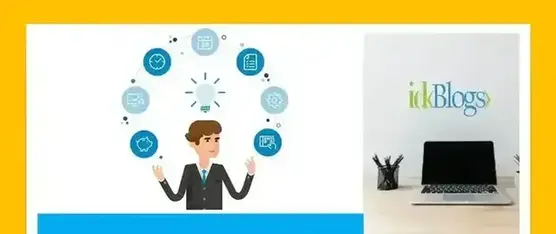

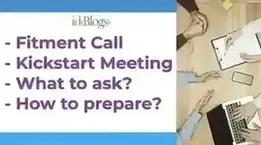

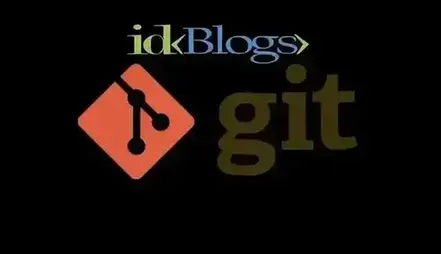
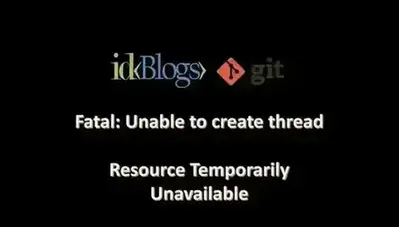
![[Gen AI] Exploring the Potential of Generative AI](../../../images/others/643_what_is_gen_ai/643_what_is_gen_ai.webp)
![[Bitbucket] Automatically assign code owners as pull request reviewers](../../../images/others/642_assign_code_owners/642_assign_code_owners.webp)
